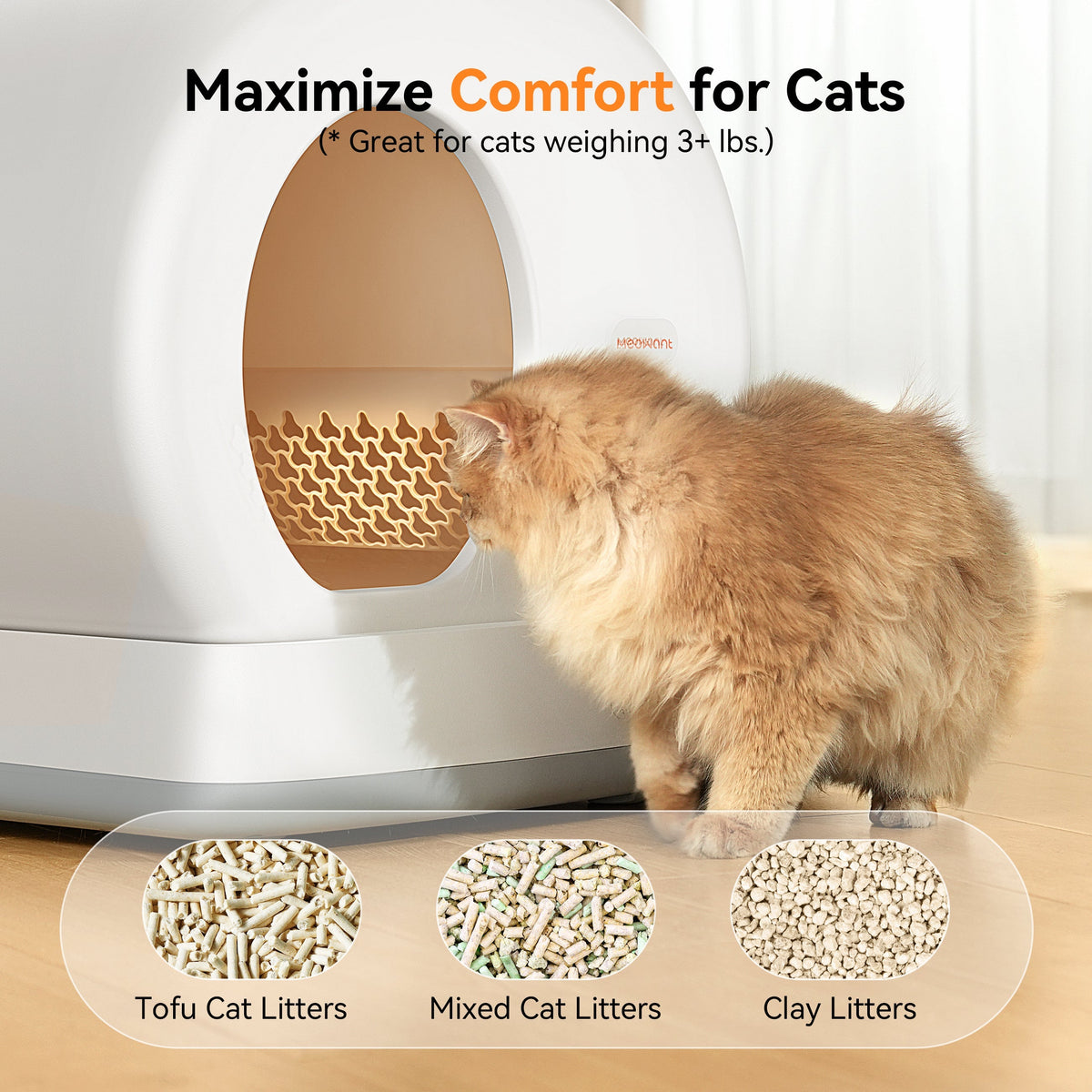What Smells Do Cats Hate?

Cats have an incredibly powerful sense of smell about 14 times stronger than humans'. This heightened sensitivity helps them navigate their environment, detect danger, and even communicate with other cats. That’s why certain household odors, some of which we humans hardly notice can actually stress out or repel our feline friends. As a cat owner, knowing what smells cats hate can help you create a safer, more comfortable home for your pet. From citrus scents to cleaning chemicals, knowing what to avoid can make all the difference in your cat’s mood and well-being.
Why Cats Are Sensitive to Smells
If you’ve ever seen your cat recoil from a certain area or bolt out of the room for no reason, chances are, their nose picked up something they didn’t like. Cats have around 200 million scent receptors, compare that to our mere 5 million, and you’ll see why their reactions to odors are so intense. This explains why they react strongly to certain odors, what seems like a faint whiff to us can be intolerable for them.
Cats use their noses to:
- Identify food (they’re picky eaters for a reason!).
- Detect threats (like predators or unfamiliar animals).
- Mark territory (through scent glands on their face and paws).
Because of this, strong artificial scents, chemicals, or even some natural smells can stress them out or deter them from certain areas. Understanding what do cats hate to smell helps you avoid accidentally making your home unpleasant for them.
What Smells Do Cats Hate?
Here are some common scents cats hate, and how to use them safely.
Citrus Scents (Oranges, Lemons, Grapefruit)
Cats tend to avoid citrus because of its strong, acidic aroma. While not harmful in small amounts, the smell can be off-putting. Try placing citrus peels in small dishes or using a light citrus-scented spray (but keep it diluted to avoid any irritation). It’s a natural and safe deterrent—as long as it’s not overused.
Vinegar
Vinegar’s sharp, sour smell is another scent cats tend to avoid like the plague. A diluted mix of vinegar and water can double as a cleaning spray and a way to discourage scratching or marking in certain areas. Just avoid using too much, it smells bad to us too.
Peppermint & Essential Oils (Eucalyptus, Lavender, Tea Tree)
Here’s where you really need to be cautious. While peppermint, eucalyptus, and lavender might smell relaxing to us, they can be downright irritating for cats. The menthol-heavy notes are just too intense. More importantly, some essential oils are toxic to cats if applied directly or even inhaled in concentrated amounts. Never use them on your cat, and skip oil diffusers in their favorite hangouts.
Spicy Scents (Cayenne Pepper, Chili, Mustard)
Pungent spices like cayenne pepper and mustard are another natural way to discourage cats from going where they shouldn’t. A light sprinkle in outdoor areas (like gardens) can deter neighborhood cats from digging. Just be sure it’s a light application,too much could irritate their paws or cause discomfort.
Dirty Litter Box Smell
No one likes a dirty bathroom, and cats are no different. A litter box that hasn’t been cleaned? Instant deal-breaker. Cats will go elsewhere if their box stinks. A dirty litter box may lead to accidents outside the box. Clean the box daily or invest in a self-cleaning litter box
Banana & Mustard
Yes, some cats weirdly hate the smell of banana peels and mustard. There’s no deep science behind it—just strong, strange smells they find off-putting. Want to test it? Place a banana peel near a favorite (off-limits) napping spot and see what happens.
What About Cat Litter Box Odors?
A smelly litter box isn’t just unpleasant for you—it can push your cat to avoid it entirely, leading to unwanted accidents. Regular scooping helps, but for a hassle-free solution, a self-cleaning litter box is a game-changer.
Meowant Self-Cleaning Litter Box:
The Meowant Self-Cleaning Litter Box is a game-changer. It automatically removes waste after each use, meaning no lingering odors and no scooping for you. It also keeps the litter consistently clean, which cats love. For anyone tired of the daily chore and the smell—this is a major upgrade that keeps both you and your cat happy.
Conclusion
Cats have a highly sensitive sense of smell, making certain scents like citrus, vinegar, peppermint, and spicy odors unpleasant for them. While these smells can help deter unwanted behaviors, they should be used cautiously to avoid stress or harm. Maintaining a clean litter box is also crucial, as cats avoid dirty areas. For effortless odor control, the Meowant Self-Cleaning Litter Box ensures a fresh environment, keeping both cats and owners happy. By understanding and managing smells, you can create a more comfortable home for your feline friend.
